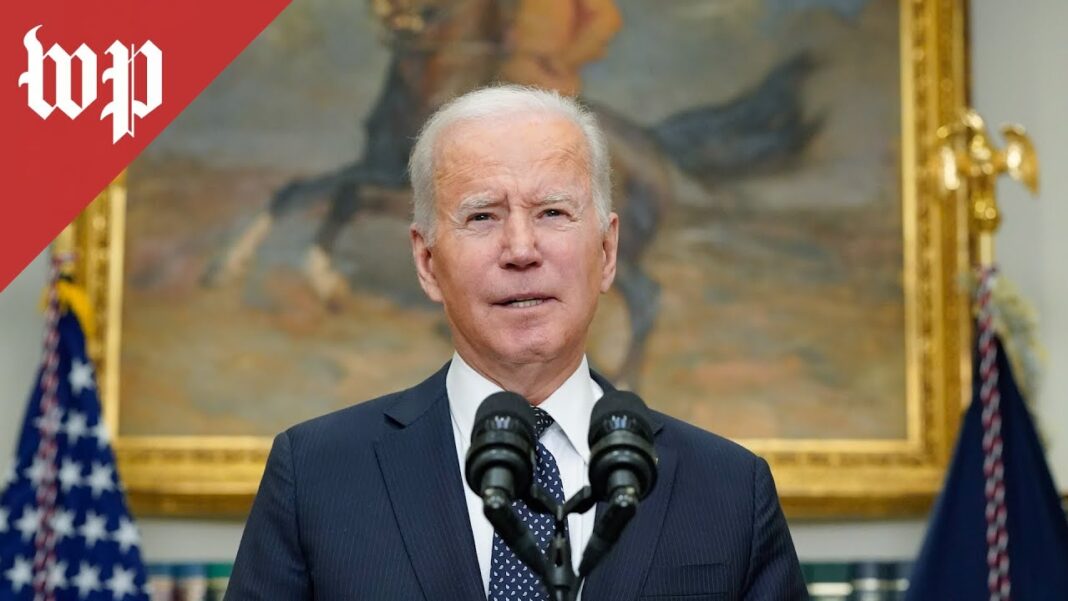U.S. Representatives Peter DeFazio (OR-04) and Warren Davidson (OH-08) today led a bipartisan letter to the Biden administration, signed by 43 Members of Congress, urging the president to receive authorization from Congress before involving U.S. armed forces in the conflict between Russia and Ukraine.
“We strongly urge your administration to respect the separation of powers, U.S. law, and Congress’s constitutional war powers authority,” the lawmakers wrote. “Should your administration seek to introduce U.S. Armed Forces into hostilities or decline to remove any U.S. military personnel currently deployed inside Ukraine from unauthorized hostilities or imminent hostilities, Congress stands ready to deliberate over the potentially monumental implications of such scenarios. The American people, through their representatives in Congress, deserve to have a say before U.S. troops are placed in harm’s way or the U.S. becomes involved in yet another foreign conflict.”
Erik Sperling, executive director of the advocacy organization Just Foreign Policy commented on the letter, “With the risk of war over Ukraine escalating rapidly, this level-headed bipartisan letter reaffirming that only Congress can authorize military action is very timely. While the Biden administration has ruled out sending additional troops, even allowing U.S. advisers and special forces to remain in harm’s way in Ukraine without authorization creates the potential for direct conflict between the world’s leading nuclear powers. Regardless of one’s view on how the U.S. should respond to tensions over Ukraine, these are precisely the critical questions that the framers of our Constitution sought to entrust to the American people through their representatives in Congress.”
Marcus Stanley, Advocacy Director for the Quincy Institute for Responsible Statecraft stated, “A direct military conflict between the two largest nuclear powers on Russia’s border would be incredibly risky and dangerous. The Biden Administration has wisely stated its intent to avoid U.S. military involvement in the Ukraine conflict, but the situation on the ground is chaotic. It is critical that the President get explicit and official Congressional authorization before taking any steps involving U.S. military personnel in Ukraine, as required by the Constitution and the War Powers Resolution.”
Cavan Kharrazian, Foreign Policy Campaigner for Demand Progress said, “We applaud the signatories of this letter for rightfully asserting Congress’s jurisdiction over the involvement of US armed forces in hostilities. By no means should the President put American troops — including embedded military advisors and special forces — into harm’s way in Ukraine without a debate and vote in Congress. While Congress remains divided on many issues, we are glad to see such a diverse range of representatives defending our Constitutional system of checks and balances when it comes to war.”
The letter to President Biden reasserts the war powers authority vested in Congress under the Constitution and U.S. law, including the War Powers Resolution of 1973. Article I of the U.S. Constitution grants Congress the power to finance and declare war, and the War Powers Resolution states that Congressional authorization is required before the “introduction of United States Armed Forces into hostilities, or into situations where imminent involvement in hostilities is clearly indicated by the circumstances.”
The lawmakers urge President Biden to make the case to Congress before involving the U.S. military in the Russia-Ukraine conflict. The letter has been endorsed by a diverse collection of organizations: Just Foreign Policy, Demand Progress, Quincy Institute for Responsible Statecraft, Concerned Veterans for America, Common Defense, Peace Action, RootsAction, FreedomWorks, Physicians for Social Responsibility, Heritage Action, and Global Zero.
You can read the letter here and below.
—
February 22, 2022
President Joseph R. Biden
The White House
1600 Pennsylvania Avenue NW
Washington, D.C. 20500
Dear Mr. President:
As you evaluate your possible course of action to address the potential conflict between Russia and Ukraine, we write to reassert the war powers vested in Congress under the U.S. Constitution and the War Powers Resolution of 1973. To date, you have rejected calls to station U.S. Armed Forces in Ukraine, stating that such an effort is “not on the table.” However, if the ongoing situation compels you to introduce the brave men and women of our military into Ukraine, their lives would inherently be put at risk if Russia chooses to invade. Therefore, we ask that your decisions comport with the Constitution and our nation’s laws by consulting with Congress to receive authorization before any such deployment.
Specifically, Article I of the U.S. Constitution grants Congress the power to finance and declare war, while Article II names the President as Commander-in-Chief of the U.S. Armed Forces. This crossover was intentionally written by the framers of the U.S. Constitution so Congress and the President would be required to cooperate on our nation’s military affairs. In addition, the War Powers Resolution of 1973 was passed into law after multiple presidential administrations failed to receive congressional approval for over a decade of unauthorized involvement by U.S. Armed Forces in hostilities in Southeast Asia. The purpose of this resolution was to reinforce the objective of the U.S. Constitution by ensuring that “the collective judgment of both the Congress and the President” would be utilized before the “introduction of United States Armed Forces into hostilities, or into situations where imminent involvement in hostilities is clearly indicated by the circumstances.”
Our nation’s laws are highly relevant to the ongoing situation in Ukraine. Were an attack by Russia to be imminent or underway, the War Powers Resolution would clearly require congressional authorization before the President may command U.S. Armed Forces to engage in hostilities.
The War Powers Resolution does not require authorization for the U.S. to advise and assist missions that do not involve hostilities. While your administration has reportedly relocated 160 Florida National Guardsmen out of Ukraine citing the “safety and security of our personnel [as your] paramount concern,”[1] we underscore that an imminent or active attack by Russia would compel you, under Section 8(c)[2] of the War Powers Resolution, to seek specific Congressional authorization if you aim to leave any remaining U.S. advisers, trainers, special forces, or other U.S. military personnel in areas of these imminent or active hostilities. You must also receive congressional approval before initiating any pre-emptive strike.
We strongly urge your administration to respect the separation of powers, U.S. law, and Congress’s constitutional war powers authority. Should your administration seek to introduce U.S. Armed Forces into hostilities or decline to remove any U.S. military personnel currently deployed inside Ukraine from unauthorized hostilities or imminent hostilities, Congress stands ready to deliberate over the potentially monumental implications of such scenarios. The American people, through their representatives in Congress, deserve to have a say before U.S. troops are placed in harm’s way or the U.S. becomes involved in yet another foreign conflict.
Thank you for your attention to this important matter.
Sincerely,
Peter A. DeFazio
Member of Congress
See all signatures in PDF below.
[1] https://thehill.com/policy/defense/593982-pentagon-chief-orders-160-us-troops-in-ukraine-to-reposition-in-europe
[2] Section 8(c) of the War Powers Resolution provides additional clarity on what can constitute the “introduction of United States Armed Forces” into hostilities, stating that it “includes the assignment of members of such armed forces to command, coordinate, participate in the movement of, or accompany the regular or irregular military forces of any foreign country or government when such military forces are engaged, or there exists an imminent threat that such forces will become engaged, in hostilities.







